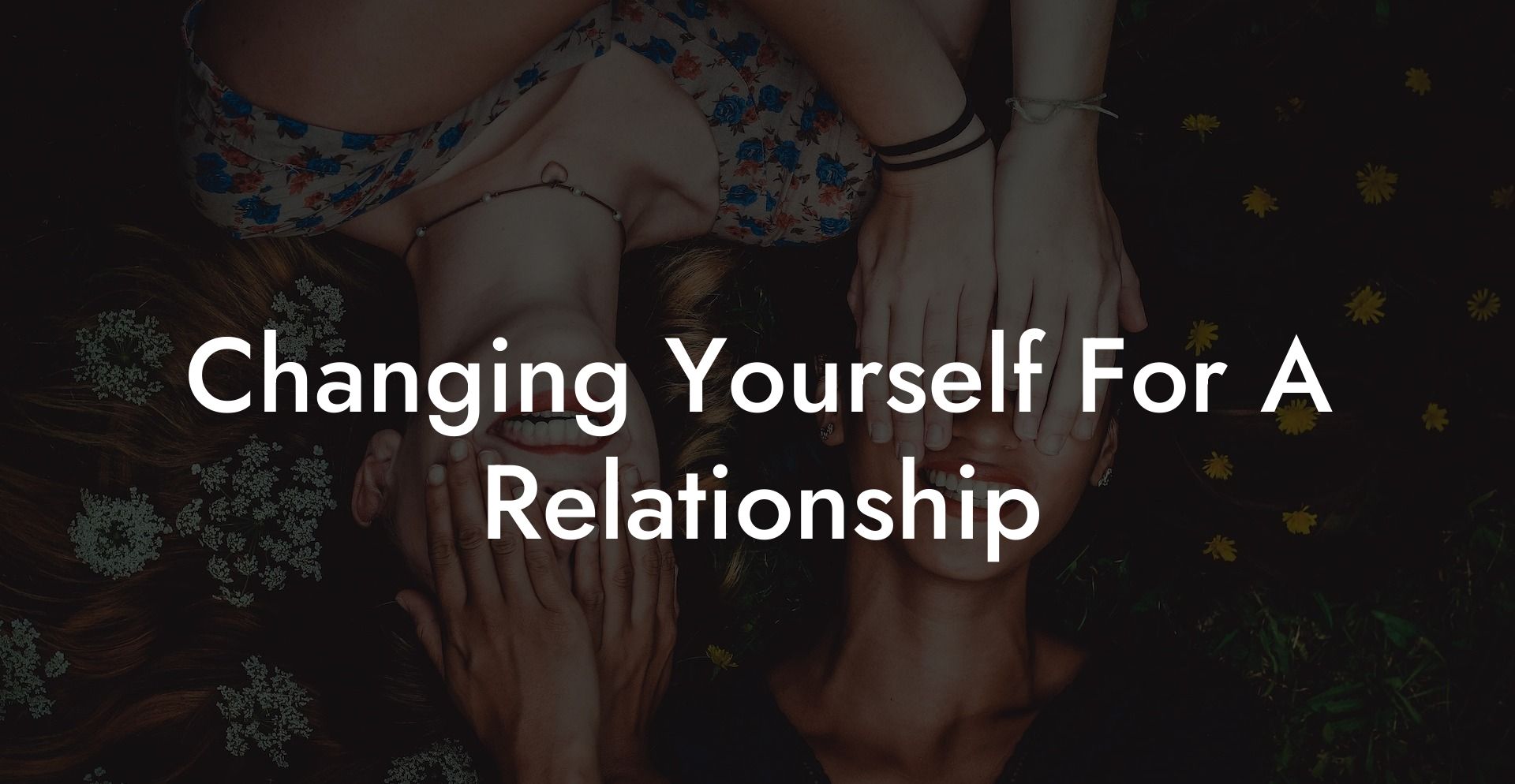Are you considering changing yourself for a relationship? Maybe you've been told that you need to tone down your boisterous personality or adjust your lifestyle to make the partnership work. But is it truly worth it? In this guide, we'll delve into the complexities of changing yourself for a relationship, the importance of staying true to yourself, and finding a balance that works for both partners.
Changing Yourself For A Relationship Table of Contents
Understanding why you want to change
Finding the balance between self-improvement and authenticity
Setting boundaries for yourself and your relationship
Understanding why you want to change
It's crucial to figure out what's driving this desire for change. Are you feeling pressured by your partner, societal expectations, or is it a genuine desire to grow and improve? Reflecting on the reasons behind your motivation to change will inform whether it's a healthy choice or if it may lead to resentment and regret down the road.
Healthy reasons to change
- Personal growth and development
- A genuine desire to improve communication or other relationship skills
- Striving for a healthier lifestyle, for example, quitting smoking or getting in shape
Unhealthy reasons to change
- Feeling pressured or coerced by a partner or society
- Trying to fit into a mold that isn't you
- Believing that you need to change to keep your partner's love or avoid abandonment
Finding the balance between self-improvement and authenticity
It's possible to grow and evolve while still staying true to who you are. Consider adopting changes that align with your values, goals, and core identity. This approach will ensure that any changes you make will be sustainable and positive rather than something that feels forced or inauthentic.
Setting boundaries for yourself and your relationship
Knowing your personal boundaries and clearly communicating them with your partner is essential. It's important to differentiate between healthy compromise and crossing your own boundaries. A healthy relationship will respect each person's non-negotiable values and needs.
Ensuring your partner's expectations are not controlling
It's essential to determine whether your partner's expectations stem from a place of love and support or if they are rooted in control and manipulation. A loving partner will encourage growth without coercion, while a controlling partner may resort to emotional, verbal, or even physical tactics to force change. Recognize these red flags and prioritize your emotional wellbeing.
Discussing changes with your partner
If you decide that certain changes will benefit both you and the relationship, have an open and honest conversation with your partner. Share your feelings, fears, and hopes, and create space for them to do the same. This dialogue will promote understanding and cooperation.
Changing Yourself For A Relationship Example:
Jane was an extroverted party girl, while her partner, John, was introverted and preferred staying in. They frequently argued about their social life, leading Jane to believe she needed to change her social habits to save the relationship.
Jane did some soul-searching and realized that her love for socializing was a core part of her identity. She recognized that she didn't want to change her entire lifestyle but was willing to make some compromises. After discussing it with John, they agreed to designate specific nights for staying in and other nights for going out. In doing so, Jane and John balanced their social preferences without losing their individual authenticity.
In conclusion, it's crucial to evaluate the reasons behind your desire to change, and whether these changes align with your core values and identity. Finding the balance between personal growth and authenticity, setting boundaries, and communicating openly with your partner will promote a healthy, loving relationship. If you found this guide helpful, please share it with others, and don't hesitate to explore The Monogamy Experiment for more insights into navigating monogamy, non-monogamy, and polyamory.













